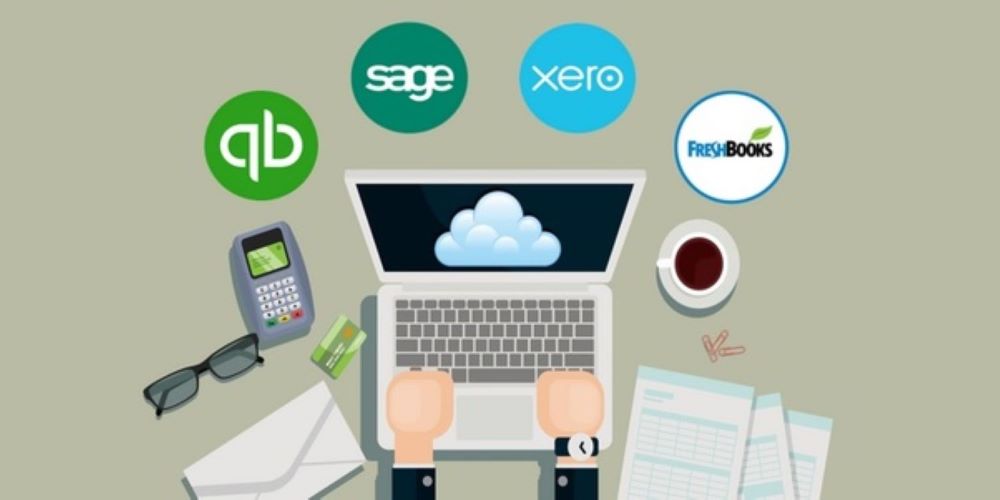The climate for start-up businesses is highly competitive. Several companies are competing for a better chunk of market share. However, it takes a truly outstanding business design to rise to the top. Unfortunately, you will be off the market if your accounting books are not in good shape. You will need much time to catch up with filing taxes, sending pitches to investors, or applying for business loans.
If you want your business to be more effective in its operations, faster, and more efficient, investing in cloud accounting software is an excellent investment. If your organization still uses desktop software or manual spreadsheets for accounting, it may be time to shift to cloud-based accounting software. Cloud-based software has tons of benefits compared to on-premise software. The solution allows workers to work at any time in any location, automates time-consuming manual tasks, improves compliance and accuracy, and accelerates financial processes with fewer efforts.
Popular Cloud-Based Accounting Software
Accounting software simplifies the bookkeeping process. The software helps businesses keep close tabs on finances and prepare for tax season, which is an easier way for small businesses and freelancers than employing a full-time consultant. Now there are cloud-based accounting solutions. This software uses remote servers to host data and secure sensitive financial information from criminals. Cloud-based software typically has a backup to the cloud to avoid losing any information stored in the server. The following are the most common cloud-based accounting software suitable for businesses:
QuickBooks Online: The software is one of the most flexible cloud-based accounting software. Intuit designed the software. QuickBooks Online offers various features such as invoicing, tracking expenses, and reporting, making it suitable for businesses of all sizes.
Xero: The software is hosted in New Zealand and is famous for its user-friendly interface that makes it easy to use. Besides, Xero has robust features, including detailed financial reports, inventory tracking, integration capabilities, and diverse business applications.
FreshBooks: The software is cloud-based, developed primarily for freelancers and small businesses. FreshBooks provides easy expense tracking, invoicing, and time tracking capabilities.
Sage Business Cloud Accounting: The software was previously known as Sage One. Sage Business Cloud Accounting is comprehensive, offering several accounting solutions such as invoicing, cash flow, and inventory management.
Zoho Books: A section of the Zoho suite business application is a cloud-based accounting solution offering time tracking, invoicing, banking reconciliation, and expense tracking, making it suitable for small and mid-sized businesses.
Wave: This cloud-based software is free. Wave software offers basic accounting features, including expense tracking, invoicing, and financial reporting, making it excellent for sole proprietors, freelancers, and small businesses.
NetSuite ERP: The software is scalable and comprehensive, offering advanced features, including revenue recognition management and financial planning, making it great for large businesses.
Melio: The cloud-based software is user-friendly and established to simplify business transactions. With Melio, small businesses can manage their accounts payable digitally, having features such as invoice management, data synchronization, and payment scheduling.
The Benefits of Cloud-Based Accounting Software
The following are the outstanding benefits of cloud-based accounting software;
Cloud Accounting: Elevating Accessibility
One of the highly recognized benefits of cloud-based accounting software is its accessibility. Unlike on-premise software, which requires physical access to a particular network or computer, you can access cloud-based software from any location, anytime. You only need internet connectivity to access your financial information regardless of where you work.
Moreover, cloud accounting software permits multi-user access. This function encourages collaboration between employees and other external partners, ensuring all team members have up-to-date and consistent information and eliminating misunderstandings and errors.
With time, your business will keep advancing, and so will your accounting needs. Fortunately, cloud-based accounting software fulfils these needs.
Unlike on-premise software, where you must invest in additional hardware or software licenses to accommodate the expansion, a flexible payment plan is all you need with cloud-based software. You can easily update your packages as the business grows and add users or downgrade when your business is in its slow season. The software allows you to pay for only what you need.
Your business may also expand across geographical borders. In that case, cloud accounting software will support multi-country operations while seamlessly supporting multi-currency transactions.
Scalability: Growing With Your Business
With time, your business will keep advancing, and so will your accounting needs. Fortunately, cloud-based accounting software fulfils these needs.
Unlike on-premise software, where you must invest in additional hardware or software licenses to accommodate the expansion, a flexible payment plan is all you need with cloud-based software. You can easily update your packages as the business grows and add users or downgrade when your business is in its slow season. The software allows you to pay for only what you need.
Your business may also expand across geographical borders. In that case, cloud accounting software will support multi-country operations while seamlessly supporting multi-currency transactions.
Cost-Effectiveness: Streamlining Your Finances
Cost-effectiveness is one of the most enticing benefits of cloud accounting software. As often stressed, the software operates on subscription plans making them affordable with little or no upfront costs. In addition, as the business expands, there will be no need for extra IT support; you will only update your subscription.
The Future of Accounting is in the Cloud
To sum it up, the benefits of cloud-based accounting software attractive to businesses are scalability, accessibility, and cost-effectiveness. The software enables immediate access to real-time financial information and caters to evolving business needs. The software helps you save both directly and indirectly.
If you are considering transitioning from traditional on-premise software, you are making the right decision. The process may seem daunting, but the long-term benefits are rewarding. Your business will be more efficient with the emerging trends and will surely stand the competition.
Article Sources
Best Cloud Accounting Software (May 2023) – Forbes Advisor
Accounting Software: Definition, Types, and Benefits (investopedia.com)

